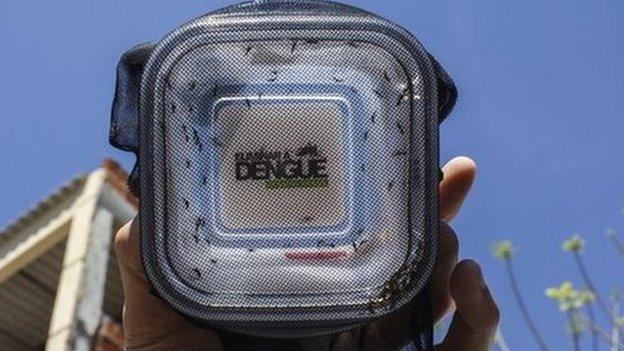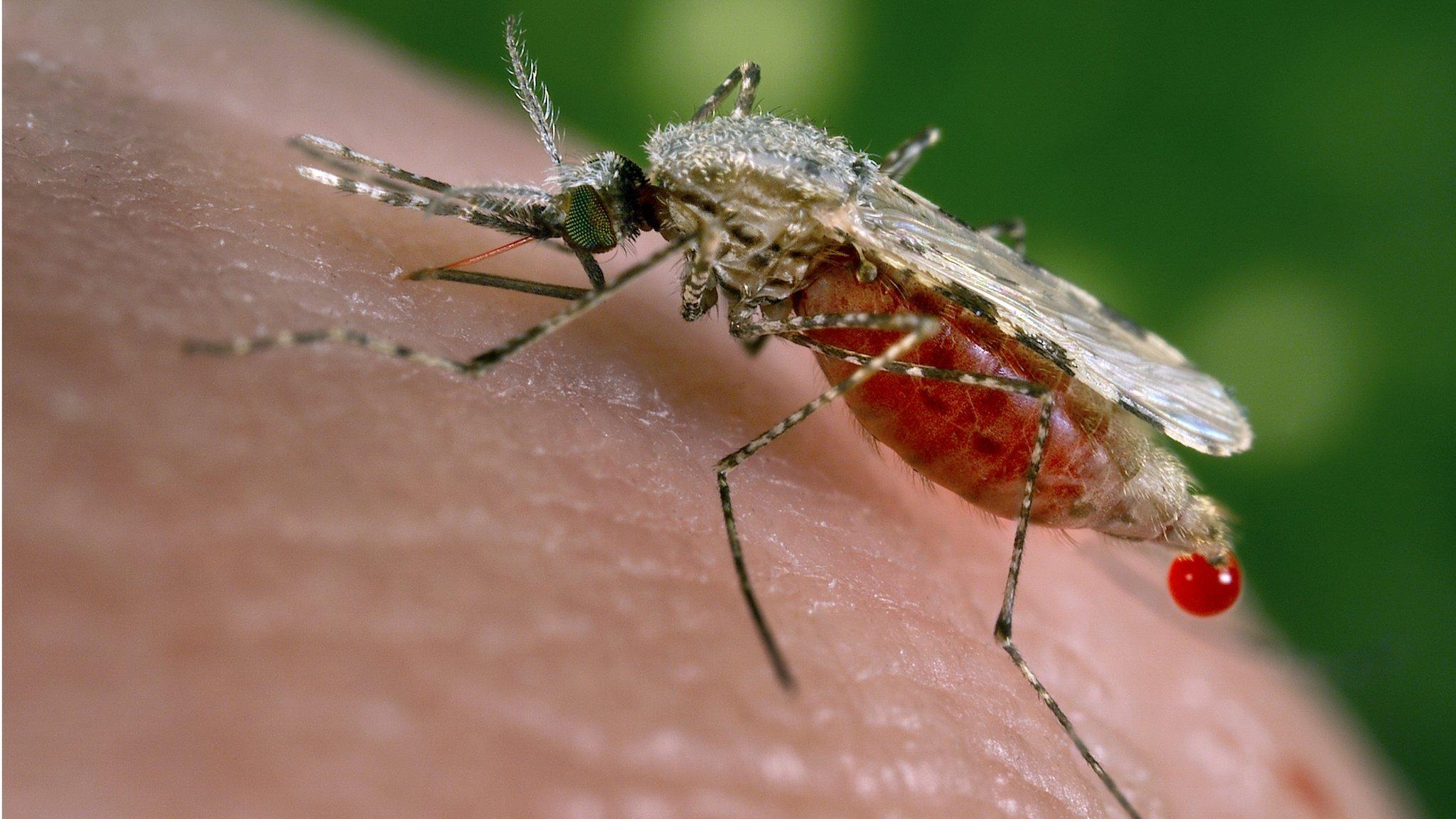'Bugged mosquitoes' stop Zika spread
- Published

Infecting mosquitoes with bacteria could help stop them spreading Zika, an early Brazilian study suggests.
Scientists deliberately gave mosquitoes the Wolbachia bug and then later exposed them to Zika virus.
They found mosquitoes infected with Wolbachia had less Zika virus in them and in some cases the virus had been deactivated.
They say with more work, the approach could be one way to prevent mosquitoes passing Zika on to humans.
Viral competition
Scientists around the world are working on ways to combat Zika - which has been linked to a rise in brain and skull malformations in babies.
The virus is thought to spread when humans are bitten by mosquitoes carrying Zika.
In this study, researchers from Brazil's Oswaldo Cruz Foundation found mosquitoes infected with Wolbachia (a bacterium that lives in many insects) had fewer copies Zika in their bodies and, crucially, an inactive form of Zika in their saliva.
They say the inactive form of Zika would not be able to cause disease in humans.
Writing in the journal Cell Host and Microbe, the scientists say they are unsure exactly how the overall strategy works but the virus and bacterium may compete for the same resources once inside mosquitoes - and the virus loses out.
They predict mosquitoes with Wolbachia - if released into the wild - would mate with mosquitoes without the bug and, over time, replace the population with Zika-resistant mosquitoes.
But scientists caution this strategy could not be used on its own.
Researcher Dr Luciano Moreira said: "We know that there will not be only one solution for Zika - we have to do this alongside different approaches, like vaccines or insecticides, besides the public measures to control mosquito breeding sites."
Dr Tom Walker, a lecturer at the London School of Hygiene and Tropical Medicine, who has worked on other programmes involving the Wolbachia bug, said this was early but promising work.
He added: "As this work is preliminary and has been done in a laboratory, one of the next steps would be to conduct a large trial outside of the laboratory."
Prof Jonathan Ball, a virus expert at Nottingham University, said: "It is unclear whether or not such an approach could work in the field and there are many hurdles that still need to be overcome, but in the absence of an effective vaccine, it could prove to be a powerful weapon to limit the spread of this and other serious viruses."
Zika virus disease has been seen in more than 40 countries during the current outbreak.
- Published24 September 2014

- Published10 May 2013

- Published2 May 2016
